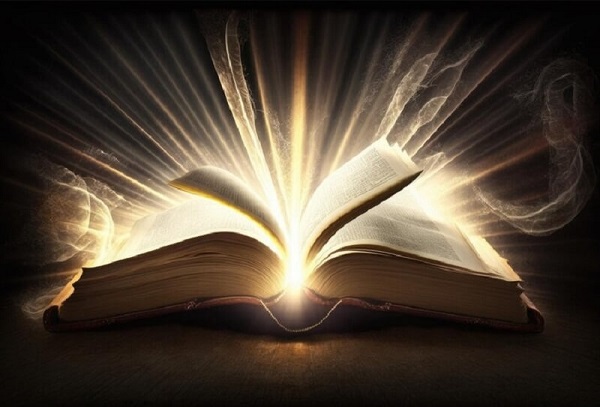Why Stay Away from the Book of Enoch?
Embarking on a journey into old books can be like finding hidden gems, but there’s a book called Enoch that needs a second look. It talks about angels, Nephilim, and the end of the world, making it sound interesting. But, here’s the catch – it’s not in the regular Bible, and people aren’t so sure about its authenticity and who really wrote it. That’s why some say it’s better to be cautious and not dive into the Book of Enoch.
With its mysteries and uncertainties, understanding why some advice staying away from it adds an extra layer to our exploration of ancient writings. Let’s figure out the story of Enoch, understand why it’s not in the Bible, and take a closer look at the mysterious Book of Enoch.
Background
The Bible, a spiritual compass for millions, comprises canonical books accepted by various religious denominations. Yet, the Book of Enoch, a collection of writings bearing the name of the great-grandfather of Noah, finds itself conspicuously absent from this revered canon. Despite being cited in Jude 1:14-15, the Book of Enoch did not earn a place among the sacred texts deemed suitable for inclusion.
Who Was Enoch?
Enoch, a figure shrouded in mystery, was a faithful descendant of Adam and the great-grandfather of Noah. His unique distinction lies in the fact that he did not succumb to a natural death; instead, God took him. This extraordinary event, mentioned in Genesis 5:21-24, marks Enoch’s departure from the earthly realm.
The question arises: Why was Enoch taken away? The Bible does not explicitly provide the answer, leaving room for interpretation and speculation about the divine motivations behind this exceptional fate.
Main Points of the Book of Enoch
The Book of Enoch, despite its exclusion from the biblical canon, offers a glimpse into a world often overlooked. Its main points can be summarized in three key themes:
Explaining Noah’s Flood
One of the central narratives in the Book of Enoch revolves around the flood during Noah’s time. It provides insight into the reasons behind this cataclysmic event, shedding light on the divine motivations and the broader implications for humanity.

Focus on Angels, Fallen Angels, and Nephilim
The Book of Enoch delves into the celestial realm, exploring the roles of angels, fallen angels, and Nephilim. This elaboration expands upon the brief mention in Genesis 6:1-4, offering a more detailed account of the interactions between heavenly beings and humans.
Prophetic Messages about the End Times
A significant portion of the Book of Enoch is dedicated to prophetic messages about the end times. Similar to the Book of Revelation, it presents visions and insights into the future, offering a unique perspective on the culmination of human history.
Is Enoch in the Bible?
Before delving deeper into the Book of Enoch, it’s crucial to establish Enoch’s presence in the Bible itself. Enoch is indeed mentioned in Genesis 5:21-24 and later cited in the New Testament in Jude 1:14-15. This dual presence raises questions about why the figure of Enoch is acknowledged in canonical texts, yet the Book attributed to him was excluded.
Reasons to Stay Away from the Book of Enoch
As believers navigate the vast expanse of religious texts, caution is often advised when approaching certain writings. The Book of Enoch, despite its intriguing content, is met with skepticism and, in some cases, outright rejection. Several reasons contribute to this caution:
Not Inspired by God
The foundational reason for the skepticism surrounding the Book of Enoch is its exclusion from the canon. Traditional belief holds that the canonical books are divinely inspired, while Enoch’s writings are viewed as products of human understanding rather than direct divine inspiration.
Enoch Did Not Write It
Scholars and theologians assert that Enoch himself did not pen the Book of Enoch. Instead, it is believed to be a compilation and expansion of different texts long after Enoch’s time. The authorship discrepancy raises questions about the authenticity and reliability of the content.
Does Not Align with the Bible
Another factor contributing to the skepticism is the perceived misalignment of the Book of Enoch with established biblical doctrines. The teachings within the book are said to contradict other biblical books, introducing additional doctrines through the use of massive symbolism not found in the canonical texts.

Why Do We Reject the Book of Enoch?
The rejection of the Book of Enoch by mainstream Christian and Jewish traditions can be attributed to three primary factors. Firstly, the book is seen as lacking the divine inspiration that is characteristic of the canonical scriptures. This absence of a clear divine stamp raises concerns about the authenticity of the Book of Enoch, casting doubt on its reliability as a source of spiritual guidance.
Secondly, the question of authorship adds complexity to the rejection. If Enoch himself did not write the book, the association with his name becomes a misattribution, challenging the credibility of the entire text. This uncertainty surrounding the origin of the content further diminishes its standing in the eyes of traditional religious authorities.
Lastly, the teachings within the Book of Enoch are perceived as running counter to established biblical doctrines. This contradiction with the broader theological framework contributes to the reluctance of mainstream religious communities to embrace the book as a legitimate and authoritative source of spiritual wisdom.
Conclusion
To wrap it up, the Book of Enoch is like an intriguing side story to the Bible, full of angel tales and prophecies. However, it didn’t make it to the official Bible club. People are cautious about it because it’s not considered directly inspired by God, Enoch probably didn’t even write it, and its ideas don’t quite match up with the usual Bible teachings. While it’s fascinating for history buffs, it’s a bit like exploring uncharted territory—exciting, but you need to be careful. It teaches us to think before diving into ancient spiritual writings.